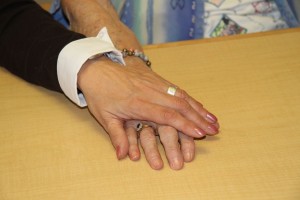 In a new article in Aging & Mental Health, researchers are suggesting that loneliness can be a self-fulling prophesy – that that the expectations older people hold of aging impacts their later health (Pikhartova, Bowling and Victor, 2016).
In a new article in Aging & Mental Health, researchers are suggesting that loneliness can be a self-fulling prophesy – that that the expectations older people hold of aging impacts their later health (Pikhartova, Bowling and Victor, 2016).
We often discuss age-stereotyping against those living in senior living on the basis of their age or health issues they may have (e.g. dementia, physical challenges etc.). This stereotyping leads to excess disability (Scholl and Sabat, 2008), but it is important to note that it exists with residents themselves—this is referred to as self-stereotyping. Older people compare their circumstances with one of the most enduring stereotypes held, and that is that old age is a time of loneliness.
In a study examining the association between expectations and stereotyping of loneliness and actual loneliness 8 years later, Pikhartova, Blowing and Victor (2016) found that stereotypes and expectations related to loneliness in old age were significantly associated. That both stereotypes and expectation were associated with later reported loneliness.
Loneliness—The most significant social contributor to health
It is becoming in increasingly clear that we have underestimated how much loneliness negatively impacts health. A study assessing the association between loneliness and the extent of a social network found that loneliness had the strongest correlation with health, even after controlling for depression, age and other covariates (Rico-Uribe et al. 2016).
Having close relationships and frequent contact matters. Loneliness continues to be a serious concern in long term care as it affects over half of the residents. Those who are lonely experience a range of negative outcomes including reduced quality of life, more frequent falls, increased hospitalizations and more.
Reducing Self-Stereotyping and Loneliness
Pikhartova, Blowing and Victor (2016) conclude that their intriguing findings point the way to a new approach to reducing loneliness. Holding a stereotype of old age and loneliness influences how well we age. Therefore, we should consider providing services and education that help reduce self-stereotyping in the wider society, particularly as it relates to aging and loneliness. This indeed may be a unique and effective approach to reducing loneliness as we age.
References
Pikhartova, J., Bowling, A., and Victor, C. (2016). Is loneliness in later life a self-fulfilling prophecy? Aging and Mental Health, 20(5), 543-549. doi: 10.1080/13607863.2015.1023767
Scholl, J.M., & Sabat, S.R. (2008). Stereotypes, stereotype threat and ageing: Implications for the understanding and treatment of people with Alzheimer’s disease. Ageing and Society, 28(1), 103–130.
Laura Alejandra Rico-Uribe, L.A., Caballero, F.F., Olaya, B., Tobiasz-Adamczyk, B., Koskinen, S., Leonardi, M., Haro, J.M., Chatterji, S., Ayuso-Mateos, J.L., and Miret , M. (2016). Loneliness, social networks, and health: A cross-sectional study in three countries. PLoS One, http://dx.doi.org/10.1371/journal.pone.0145264
